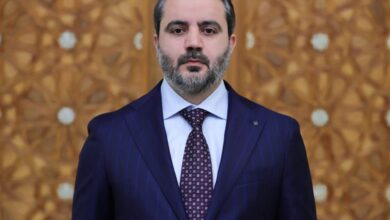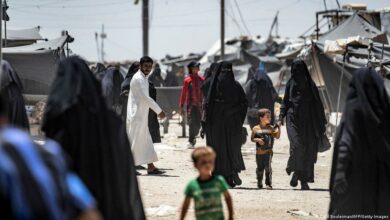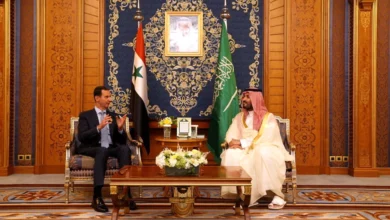
Russia on Monday endorsed an Egyptian initiative to reconvene four Middle East powers to try to resolve the Syrian crisis after Saudi Arabia failed to show up for the last two meetings of the group, blunting its clout.
Cairo launched talks involving countries that include three opponents of Syrian President Bashar al-Assad — Egypt, Saudi Arabia and Turkey — and Iran, a staunch ally in his conflict with rebels fighting to overthrow him.
Riyadh, which has long tussled with Tehran for regional influence, sent a representative to preparatory talks on 10 September but skipped two subsequent ministerial meetings.
"We fully support the regional quartet initiative that President Morsy has launched to resolve the Syrian crisis," Russian Foreign Minister Sergei Lavrov said after discussions with Egyptian counterpart Mohamed Kamel Amr in Cairo.
"All major players including five members of the (UN) Security Council have agreed on the Geneva Declaration. All the participants have agreed to push both sides in Syria to a ceasefire. We are trying to work with both sides, the government and the opposition."
The Geneva Declaration, which was agreed in 30 June when Kofi Annan was the international mediator, called for a transitional administration in Syria but did not specify what role, if any, Assad — an ally of Russia — would have.
Egypt, Saudi Arabia and Turkey have all said Assad must leave power. Iran has said Syria's problems must be solved by dialogue and elections. President Mohamed Morsy himself has been strident in statements against Assad, including at a conference in Tehran.
Russia has long been Syria's major arms supplier and has blocked attempts to isolate Assad with UN sanctions, a move Western powers say would help stop the violence and foster a genuine reform process.
Moscow has opposed what it calls foreign interference in the Syria crisis and says Western calls for Assad to leave power has abetted violence by the insurgents.
Ever since Morsy first announced plans for the initiative in August, diplomats have questioned whether the regional quartet could reach any substantive agreement, given the diverse views within it.
Some analysts say Egypt's main goal may have been to put Cairo back on the map as a leading player in regional diplomacy.




